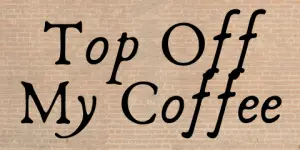Imagine you’re walking through a wooded area and come across a bush with green little berries. They aren’t harmful, so you take some and eat them. In this case they aren’t berries, but they are beans. And by eating them you get a little rush. This must have been what discoverers of the coffee beans felt when they found the beans and tried them. Delicious.
Before coffee as we consume it today was the standard, people ate the beans to get a boost of energy for hunts, getting up early to farm, or just as a little pick me up. Eating coffee beans, just as consuming the water poured over them, gives you the effects of a caffeine rush, there are considerations before you give up drinking coffee and just start eating the beans.
What are the effects of eating coffee beans?
Eating coffee beans will give you the same pick me up feeling because of the caffeine, but the effects will be magnified. The act of roasting the coffee beans can decrease the acidity as we’ve previously discussed. Without that roasting, you will have the full power of the caffeine and other chemicals in the original coffee beans. Beyond what you digest through your stomach, the active ingredients in coffee can also be quickly absorbed through the mucus membranes in your mouth.
Increased Heartburn
Coffee beans include a number of chemicals that have been shown to increase the production of stomach acid. Caffeine, as well as organic compounds called catechols, increase your stomach’s reaction for digestion and lead to increased stomach acid. That leads to heartburn as the acid pushes into the esophagus giving you that uncomfortable feeling.
The Laxative Effects of Coffee
Did you think the coffee cup shaped like the poop emoji was purely unrelated? Coffee and coffee beans contain enzymes that stimulate bowel contractions. Coffee beans, because of their full strength effect, will have a fast-acting laxative effect on you. It will most likely be faster than just drinking a strong cup of coffee. Decaffeinated coffee beans will have an effect, so trying to avoid the effects that way won’t really work.
Why is it Called the Wake Up Juice?
Caffeine is most likely the ingredient most associated with coffee and coffee beans. Caffeine blocks adenosine, which is the hormone that causes drowsiness. Without adenosine, you won’t have to deal with drowsiness. While that sounds good when you’re yawning again and again, the full effects of coffee beans may be more than you’ve bargained for. You may go from slightly tired to wide awake, and then feel the heavy crash after the caffeine leaves your body. It may leave you feeling more tired in the long run than you started, and that may or may not be good for you.
Will Eating Coffee Beans Cause Insomnia?
Speaking of the wake up effect, eating coffee beans can cause problems with catching some Z’s hours after you ate them. This may be something simple like having trouble falling asleep, and could be a temporary case of insomnia in the worst case scenario. If you do fall asleep, you could wake up feeling tired and not well rested as you intended. How much you’ll be affected will depend on the quantity of beans eaten, if you normally consume coffee in any form, and when the beans were eaten. The initial digestion will have the immediate effect, and it will reduce over time.
No Pain No Gain
While it may sound all doom and gloom to eat coffee beans, they do have a positive effect for you. One opportunity is a chance to decrease pain and soreness after exercising. In a 2007 study from the University of Georgia it was found that consuming caffeinated coffee or coffee beans prior to a workout reduced muscle soreness from 26% to 48% depending on the exercise in the workout. The finding was that caffeine blocks adenosine (the same thing that causes drowsiness) and recues the perception of muscle inflammatory pain and soreness.
It Fits in the Diet Plan
Coffee in general adds minimal or no calories to your daily intake. That includes coffee beans eaten whole. Calories, as thought of in food intake, are measured an energy source. Coffee and coffee beans provide no energy to you, although they do give you a feeling of being energetic. Espresso, a highly concentrated form of coffee, only offers 3 calories. For those that love chocolate covered espresso beans, it’s not the beans that give you the calories. It’s that delicious chocolate coating.
So, Can I Eat Coffee Beans or Not?
To answer the original question of eating coffee beans, the simple answer is yes. You can eat them. Maybe the question would be better be phrased as should I eat coffee beans? That is one that you’ll have to decide for yourself. With so little calorie count, there isn’t a dietary reason to say no other than the spike of caffeine you’ll receive may or may not cause some sleep disturbance and extra stomach acid and heartburn. If you already have to cut down the food and drinks that cause acid reflux, there are ways to also reduce your reaction to coffee beans. You can look for low-acid beans and dark roast beans that may be the ticket for you in the long-run. So go on and keep eating the beans and look for the roasting and conditions that suit you best.
